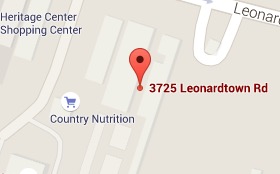Tax Newsletter
Tax Records: Requirements for Charitable Contributions
A tax deductible item may be subtracted from a taxpayer’s income, thereby reducing taxable income before calculating the amount of tax owed. The resulting tax savings vary, depending on the taxpayer’s income tax bracket. A long-established type of deduction is for contributions to charitable organizations.
There are many rules and regulations surrounding the deductibility and amounts of bequests to charities. This article focuses on record-keeping requirements to ensure that the charitable deduction is allowed by the Internal Revenue Service (IRS). Tax laws establish deductions, but the IRS also publishes rules and regulations to explain and regulate the deductions. The IRS regulations establishing the record-keeping obligations are discussed in this article.
Cash Contributions
For each cash contribution (by cash, check, or credit card) of less than $250, the taxpayer must maintain at least one of the following:
- A canceled check or account statement showing how the contribution was made;
- A receipt (or letter) from the charity showing the date and amount of the contribution; or
- Other reliable written records showing the charity’s name and the date and amount of the contribution.
For cash contributions of $250 or more, a written acknowledgement from the charity is required that contains the following information:
- The amount received;
- Whether the taxpayer received any goods or services in exchange for the contribution, other than token items and membership benefits; and
- A description and good faith estimate of the value of the goods and/or services received.
Non-Cash Contributions – Less Than $250 Value
A contribution of property valued at less than $250 requires a receipt from the charity showing:
- The name the charitable organization;
- The date and location of the contribution; and
- A reasonably detailed description of the property contributed, perhaps including fair market value (FMV), although this is not necessarily required.
Additional records are required that include the following information:
- Name and address of the charity.
- The date and location of the contribution.
- A detailed description of the property donated.
- FMV of the property when it was contributed and how this was calculated.
- The cost or “basis” (i.e., the original cost, subject to additions and deductions) of the property if the FMV was reduced by depreciation.
- The amount claimed as a deduction for the tax year as a result of the contribution.
- Any terms or conditions attached to the contribution, such as on the use or sale of the item contributed.
Non-Cash Contributions – $250 to $500 Value
The same information and records required for non-cash contributions of less than $250 are required for contributions of $250-500. In addition, the acknowledgment must:
- Include a description of the property (not necessarily the value); whether the taxpayer received any goods or services from the charity as a result; and a description and good faith estimate of the value of the goods and services received, unless the contribution consists of intangible benefits.
- Be obtained before the date the tax return is filed or the due date of the filing (including extensions).
Non-Cash Contributions – $500 to $5,000 Value
For property contributions in this value range, the information and records required for non-cash contributions of a lesser amount are required. Additional records must be kept that include the following information:
- How the property was obtained, e.g., by purchase, bequest, inheritance, or exchange.
- The approximate date the property was obtained or created (substantially completed) by or for the taxpayer.
- The cost or adjusted basis of property held for less than a year. If the property has been held more than a year, this information should be reflected, if such documentation is available. This requirement does not apply to publicly-traded securities (stocks, bonds, etc.).
Non-Cash Contributions – Over $5,000 Value
If a deduction over $5,000 is claimed for contribution of one property or a group of similar property items, the taxpayer is required to obtain and maintain the acknowledgment described above for non-cash contributions of a lesser amount and must maintain the same documents. In addition, the taxpayer must generally also obtain a written appraisal from a qualified appraiser. The IRS has provided numerous regulations governing the information that must be contained in a qualified appraisal.
© 2024 NextClient.com, Inc. All rights reserved.



